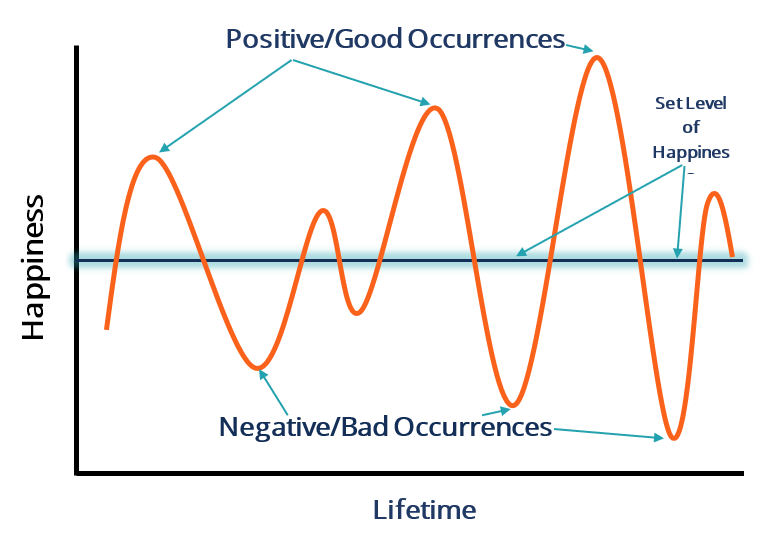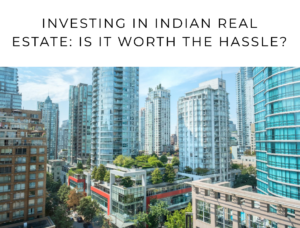Imagine that you have a job you are not crazy about, performing boring, repetitive work every single day. You aspire to change your career and own an eatery. Finally, you leave your job, rent a retail space, and create the hip and happening cafe of your dreams. Initially, you feel extremely overjoyed and grateful to have taken the entrepreneurship route and quit your monotonous job. With time, however, you find going to work every day less enjoyable. Eventually, you return to the same level of happiness as you began at when you had an office job.
When we keep jumping fences never to find what we’re looking for is an example of the classic “hedonic treadmill,” resulting in a gradual slip into discontent.
The theory of the hedonic treadmill states that regardless of what happens to people, their levels of happiness will eventually return to their baselines. For example, say you get married, move into a new house, get a promotion, lose a job, suffer an accident, etc., over time, you’re likely to return to your set point of happiness.
There is an initial spike in happiness or sadness, but with time, the feeling of happiness or sadness caused by an event starts to evaporate, and habituation kicks in. After some time passes, you’ll be back at the level of happiness at which you were before.

These fences exist in our professional lives, our personal lives, our consumer habits, and even our leisure pursuits. That hope of enhancement keeps us marching on to the next goal. Unfortunately, these never-ending pursuits can leave us tired and constantly dissatisfied in ourselves at not accomplishing enough. This is especially the case when compare a lot.
Lloyd Blankfein, ex-Goldman CEO and billionaire, claimed in an interview that, despite his immense wealth, he isn’t rich: Blankfein insists that he is “well-to-do,” not rich. “I can’t even say ‘rich’,” he insists. “I don’t feel that way. I don’t behave that way.”
How can a stinking rich billionaire like Blankfein feel like he is just “well-to-do?”
Guess what? You probably don’t act all that different. How is that even possible? Because you are likely far richer than you think.
In a recent report, Credit Suisse estimates that the minimum wealth for an adult to be part of the richest 1 per cent in India is $150,902. At current rates of around Rs 74.5 to a dollar, that is Rs 1.12 crore. Please note that this is wealth per adult and not per household. In rupee terms, you should have just Rs 16.74 lakh to be in the top 10 percent. That sounds tremendously low, but then median wealth per adult in India in 2020, according to Credit Suisse, was a paltry $3,194, or Rs 2.38 lakh.
You probably think it’s unfair to compare yourself to random people around the globe like rural farmers? Guess what? Lloyd Blankfein probably thinks it’s unfair to compare himself with people like you and me.
After all, is the top 10% rich? The top 1%? The top 0.01%? There is no correct answer, because “being rich” is a relative concept. Always has been and always will be. And that relativity will exist as long as you are alive. Therefore when I ask, “Who really feels rich?” the answer is no one.
The Key to Happiness
Be realistic and think at what monetary level you would be satisfied and not worry anymore. Now, write this number down somewhere where you can refer to it later. It is crucial to write this down because there is a lot of evidence that people will increase this number as they draw closer to their original goal. The hedonic treadmill is a tempting one.
While 1 crore might make you happy now, when you see colleagues with 2 crore, you might start chasing that. This is why knowing your lower and upper thresholds are so important for your financial and psychological well being.
Humans are social animals that unconsciously evaluate each other in status hierarchies. Just like other apes, we need to know where we stand compared to each other. However, because this isn’t easy to do nowadays, we use things like money, fame, and looks as representations for status.
Make Your Luxuries Temporary
The average house size has increased, even as the typical number of people per household has decreased: When I was growing up in a joint family of 10, we lived in a two bedroom flat. We are now a nuclear family of 4 and living in a two bedroom flat is not comfortable and we are contemplating moving to a three bedroom apartment.
This is due to hedonic adaptation. When you get a larger home, and a fancier car, and a promotion at work, and a bunch of new shoes, it feels great at first. The problem is you quickly adapt and return to your baseline level of happiness.
In fact, it should be this way. If it wasn’t, then we’d become so blissful with our situation once we achieve our goals that we wouldn’t push any further. Instead, our baseline happiness goes back to normal, so that we feel the urge to keep seeking out more resources. Yeh Dil Maange More!
But offlate, this harms us, because we keep acquiring things to fill the ever-present hole. Our baseline expense level keeps increasing, leaving us very little money to save and invest. Am I saying we should live like paupers? Eat maggi all the time? No.
The way to save money while getting around the problem of hedonic adaptation is to live in a simple utilitarian way, and experience luxuries occasionally. Have a modest, comfortable home and a practical car or other transportation. But enjoy a nice restaurant or luxury vacation now and then.
In return, you can invest the surplus funds in your retirement portfolio to achieve financial freedom at an earlier age. It feels amazing to have more than a decade’s worth of expenses stashed away and continuously growing. All the financial stress or worries about your job melt away.
But then, go on a nice vacation once in a while. Splurge a bit! Travel to that foreign destination you’ve always wanted to see. Stay in the hotel you want, rather than a cheaper hotel. Savour the luxury.

By spending most of your time living a minimalist lifestyle, your hedonic adaptation will continually be reset to that low baseline. You’ll be just as happy (and possibly happier) with less. So, when you do experience luxuries during nice vacations or fancy restaurants a number of times per year, it feels totally fresh each time.
Renting Many Trumps Owning One
Own utility; Rent luxury. Why buy a farmhouse when you can rent one? Most people’s dream of buying a farmhouse in the outskirts of their city or owning a luxury car centers mostly around fantasies of being on holiday or on a long leisurely drive.
Resist the temptation to spend huge sums of money on anything that you can rent. “Exotic items” like vacation houses, cars and even high end designer clothes can all be rented. The money you would spend to own any one of these things could be used to rent all of them and the benefit of renting is that you aren’t responsible for it once you’re done using it. Get real! How many times in a year will you want to visit the same farmhouse and stay for a long while? For most people, it’s not enough to justify buying and maintaining that farmhouse and the same applies for most exotic items.
When you rent, you just turn up and have a great time and when you finish you leave for your next experience with none of the burdens and responsibilities of ownership and having spent a fraction of the money! In short: You don’t really want to own a horse; you want to ride a horse and there is a big difference.
If expectations grow faster than income, you’ll never be happy with your money. An important financial skill is to stop moving the goalpost. It is also one of the hardest. People gauge their wellbeing in comparison to those around them. Everyone does it.
Subconsciously or not, everyone looks around and says, “What do others like me have? What do they do? That’s what I should have and do as well.”
Today’s economy is great at creating two things: wealth, and the ability to show off wealth. Part of that is good, because saying “I want that too” is a powerful motivator of progress. But the point remains: We might have higher incomes, more wealth, and bigger homes – but it’s quickly smothered by inflated expectations.
Whether it’s savings or investing, stopping the goalpost (or at least moving it slower than your income grows) is the only way to be happy with what you have and ensure you don’t overstretch the limits of what you can handle.
Managing Expectations
We must constantly remind ourselves that wealth is a two-part equation. What you have and what you want. Once you realize that each part is equally important, you realize that the tremendous attention we pay to acquiring more and the negligible attention we put on managing expectations makes little sense, especially because the expectations side might be more in our control.
To conclude, running on the hedonic treadmill is not necessarily good because it creates a condition where you require more and more to feel happy. But, understanding how the hedonic treadmill functions in your life can make you experience the world in a more positive way.




